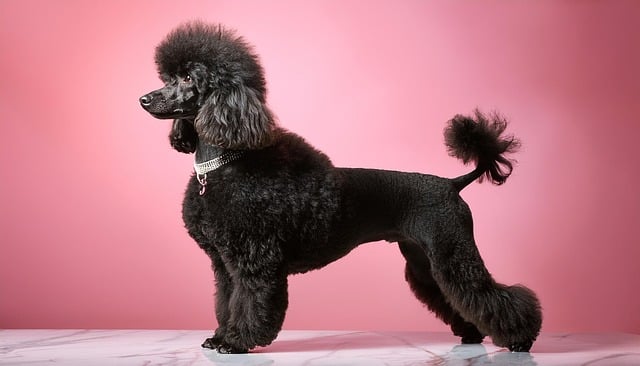
How do i train my dog to be obedient?
Watching your dog dart across the park ignoring your calls isn’t just frustrating—it can put them at risk near busy streets or public spaces.
That wobbly little explorer bounding into your life isn't just learning your household routines—they're forming their blueprint for understanding the entire world. Proper socialization is less about scheduling endless playdates and more about strategically nurturing your puppy’s confidence through positive exposure during their critical developmental window, typically peaking between 3 and 14 weeks. Get this foundation right, and you’re paving the way for a calm, adaptable adult companion. Neglect it or approach it haphazardly, and you risk lifelong anxiety or reactivity. In places like the EU and UK, where breed-specific regulations and strict public behavior standards exist, a well-socialized dog isn’t just a pleasure—it’s a legal safeguard.
Forget overwhelming crowds or chaotic dog parks initially. True socialization begins gently and controllably. Focus on quality experiences over quantity. Your mission is simple: help your pup associate new sights, sounds, smells, people, and animals with something wonderful—think tasty treats, gentle praise, or a favorite toy. Spot a delivery van two houses away? Pair it with a bit of cheese. Notice a neighbor wearing sunglasses? Toss a treat as they pass. See a calm older dog across the street? Reward your pup for relaxed observation. If your puppy hesitates—freezing, tucking their tail, or backing away—simply increase the distance. Never force an interaction. This thoughtful approach builds resilience without overwhelming them. Remember, fear periods will happen. If your pup suddenly balks at something familiar, avoid coddling or pushing—pause and revisit it later at a lower intensity.
Safety and legal compliance are essential. Until your vet confirms full vaccination status, skip high-risk areas like dog parks or pet store floors. Use a carrier or stroller for safe "sightseeing" in urban spaces. Across many European cities and dense U.S. metros, leash laws are strictly enforced—practice calm leash manners during short outings. Respect personal space diligently; not everyone appreciates an enthusiastic puppy greeting, no matter how adorable. Cultural norms vary: in some UK parks, reliable off-leash recall is expected, while cafes in Paris often welcome well-mannered, leashed dogs. Teach your pup to calmly ignore strangers when needed, especially where direct approaches might unsettle them.

Broaden exposure beyond people and dogs:
Introduce varied surfaces like grass, tile, metal grates, and wet pavement. Familiarize them with everyday sounds—vacuum cleaners, doorbells, traffic, children laughing. Create positive associations with experiences: short car rides, mock vet exams at home, gentle brushing, and encounters with umbrellas or mobility aids. Ensure they meet diverse people—men and women, individuals wearing hats or uniforms, people of different ages and appearances. Always let your puppy investigate novelty at their own pace, pairing every new encounter with rewards. Never drag or pressure them.
Dog introductions require extra care. One negative encounter can leave lasting scars. Prioritize meetings with known, calm, vaccinated adult dogs over unknown puppies. Avoid chaotic group play. Watch for loose, wiggly body language and mutual play bows—step in if play escalates or one dog hides. Well-run "puppy socials" with professional supervision are invaluable. In regions with breed-specific legislation, like parts of Spain or certain U.S. counties, a dog displaying calm neutrality around others isn’t just desirable—it’s a layer of legal protection.
While active socialization peaks early, the learning never truly stops. Stay patient, keep it positive, and let high-value treats do the heavy lifting. By prioritizing joyful associations and respecting your puppy’s comfort levels, you’re doing more than checking a training box—you’re building a resilient, trusting dog who thrives in the complexities of modern Western life. This reduces community conflicts and honors the spirit of responsible ownership embedded in animal welfare laws across Europe and North America. A well-socialized puppy grows into a confident ambassador for all dogs—a companion you’ll both cherish for years.

Watching your dog dart across the park ignoring your calls isn’t just frustrating—it can put them at risk near busy streets or public spaces.

New puppy owners often find themselves rushing to clean up accidents before they set in, and that’s where puppy pad training becomes a game-changer.

If you've noticed your dog's waistline disappearing and your veterinarian has mentioned those few extra pounds, your first instinct might be to simply reduce the amount of food in their bowl.

Training a dog to use a designated spot indoors isn’t as daunting as many new owners fear, but it does take consistency and an understanding of your pet’s needs.

That moment of dread on a walk is all too familiar for many new dog owners. You see another dog approaching down the sidewalk of your neighborhood

If the sight of another dog on your neighborhood walk makes your heart sink as your own dog erupts into a frenzy of barking and lunging, you're not alone.